- Home
- Iain Rob Wright
The Gates: An Apocalyptic Novel Page 2
The Gates: An Apocalyptic Novel Read online
Page 2
Rick pulled a face. “Horrible.”
Keith shrugged.
“Somebody mutilated her eyes, Keith. I don’t know how a person can…” He sighed and took a nip of whiskey. “And that stone they were talking about... They said they couldn’t collect it. What does that even mean?”
“That it’s heavy. Who cares?”
Rick wasn’t sure why he cared. Perhaps it was because he often felt so isolated and vulnerable here on his own. He sometimes lay in bed at night hearing noises and worrying about robbers creeping around downstairs. That might be why the thought of an old lady being mutilated and murdered just miles away from his home was more than a little unnerving. “I just find the whole thing sad,” he said. “Why would someone do that to a pensioner?”
Keith chuckled. “You always think too much, Rick. I remember when our dog, Cassie, died. You cried in your room for a week. You were such a funny child.”
Rick topped up his whiskey and exhaled into his glass, then took another long swig. He clonked the empty glass down on the counter and took a moment to study his older brother—a slightly plumper, slightly balder version of himself. His previously jet-black hair had lightened towards grey and his nose seemed bigger. “What do you want, Keith? Will you tell me why you’re here? I know it’s not because you missed me.”
Keith rubbed a hand against his stubbled chin. It was unlike him not to be clean-shaven. “Maybe I should have that drink after all, Rick. I’ll have whatever you’re having.”
Rick poured his brother a whiskey in a fresh glass and slid it towards him. “Why are you here for God’s sake? Will you just tell me?”
Keith wrapped his fingers around the whiskey glass and stared down at the oak-coloured contents. “Because I have no place else to go. I need to stay here tonight, Rick. Maybe for a while.”
Rick closed his eyes. He could not have got a worse answer.
~MINA MAGAR~
Oxford Street, London
“Come on, Mina,” shouted David. “We need to get there before the others. There won’t be room to swing your elbows soon, and I need those shots.”
Mina kept a firm grip on her camera and fought to keep up. She was fifteen years younger than David, but when there was a story to be had, the man could move like the wind. His yellow hair flowed behind him like a thoroughbred’s mane, and he slipped through the crowd like water through a sieve. All Mina caught were brief flashes of his Argyle socks. She, meanwhile, bumped into people almost every step, and received more than a few dirty looks. She couldn’t help but apologise profusely.
Even on a slow day, Oxford Street was one of the busiest spots in London, and today people were teeming through it like ants. They packed together in small groups, lining the road on both sides. The police were massively outnumbered and struggled to maintain order. The large gathering lacked the festive spirit of, say, a Royal Wedding, and instead held an atmosphere more akin to a kindling riot. People had a look of mischief about them, and several lampposts were skewed as people hung off them like chimps.
David shouted again. “Come on, Mina. I can see those buggers from The Chronicle already there. We can’t let them hog the headlines.”
Mina fiddled with her camera while trying to run. She wanted to have the settings ready for when she started snapping. Her pictures would be used in the Slough Echo, but if she produced something noteworthy, it might spread to bigger outlets, or even go viral. Maybe if she achieved that her father would finally see she was good at her job, and stop telling her to quit all the time.
Not looking where she was going, Mina collided with the square back of a man. The shaved head turned around and glared at her. “Watch where you’re fuckin’ goin’, luv.”
Mina backed up. “Sorry, I’m so sorry.”
When she heard the man mutter the words, ‘Fucking Paki,’ she was stunned. How dare he! She wasn’t even from Pakistan. How could people be so hateful?
“Come on,” David shouted for the third time. “Get moving.”
Mina wanted to say something back to the snarling racist, but instead she ended up smiling nervously and moving on. Much as she would’ve liked to confront him, she wasn’t that person. Even the thought made her stomach churn. So she put the experience behind her and focused on her job.
“I’m right behind you, David,” she shouted as she dodged around a woman with a pram loaded with shopping bags instead of a child. Up ahead, the historic Selfridges building loomed unhappily. Its sleek interior was devoid of shoppers, and the bus shelter out front had been smashed and twisted by enthusiastic oglers trying to climb it.
David pointed ahead, still dodging through the crowd with fluid ease. “We need to hurry, come on. We can’t afford to miss anything.”
“I’m right behind you,” she shouted, even though she was six steps back. They were heading for the Soho Street intersection on the east end of Oxford Street, but they had been forced to get off the tube at Bond Street as Oxford Circus and Tottenham Court Road were closed. It was a long walk on a normal day, but today was a nightmare. It was like squeezing through a corridor of hot, sweaty people, and when she saw Newman Street coming up on her left, she let out a moan of joy. They were only one street away.
“There! I see it,” David shouted.
Mina caught up to him and saw it too. They had arrived at a police cordon outside McDonald’s. A dozen scientists milled around inside the tape as if they hadn’t even noticed the thousand-strong mob surrounding them. They were focused on the strange black stone, curiosity at the forefront of their minds. Mina was fixated on it too, surprised at how unremarkable it was.
Since the first stone had been discovered last night in the village of Crapstone, hundreds more had materialised. Business began as usual that morning in the City of London, but it soon became evident that something strange was afoot. At seven-thirty, a double decker bus had struck a bowling ball-sized stone in the centre of Oxford Street and broken its axle. The driver got out to investigate, and died of a massive and explosive heart attack a second after touching it.
News circulated rapidly after that—panic spreading thick and fast. Identical stones appeared all over the United Kingdom, from Inverness to Plymouth to Norwich to Hull, and Glasgow too. Wales had identified more than a dozen within its borders. Word spread that anyone who touched the stones would immediately die of a heart attack, and that had been the nugget of news to set the nation on edge.
The stones were a threat.
Public alerts were issued: Do not approach the stones and report any discoveries immediately. A hotline was set up too, plastered at the bottom of every news report. New discoveries came in every minute.
The stones were everywhere.
“It’s just a rock.” Mina heard the disappointment in her voice as she spoke. “I was expecting something more… I don’t know. It’s just a rock.”
A leathery-skinned old woman grabbed Mina’s arm, madness in her rheumy eyes, and barked at her. “It’s aliens. They’ve sent ‘undreds of meteorites to Earth to colonise us. That stone is gunna crack open like a coconut and spill its load into the atmosphere, you mark me words. We’re all dead!”
Mina yanked her arm away and rubbed the finger marks left on her skin. She clung to David, but he paid her no attention, focused only on making it past the police cordon. Mina covered her mouth in shock when she saw him knee a child out of his way. The little boy fell to his knees, got up, then went crying to his mummy, arms outstretched and begging to be picked up.
“David, you just hurt a child.”
“The brat shouldn’t have been in the way. Ah, here we are, finally.”
They made it over to a burly police sergeant with a clipboard in his hands. He was grinding his teeth and taking slow, deep breaths. His wide eyes examined David and Mina with suspicion. “Stand back, please.”
“We’re with the Slough Echo,” David snapped.
The sergeant ran a finger down his clipboard and nodded. “Okay, step inside the cor
don, but don’t go within six feet of the object.”
David swooped beneath the police tape without another word. Mina took a moment to thank the sergeant before doing the same.
The black stone sat in the middle of the road.
Mina’s tummy churned. It wasn’t hunger—she’d grabbed a hotdog less than an hour ago—it was something else. The mysterious object, just ten feet away from her, had killed people. It was dangerous. She’d been so intent on getting to Oxford Street, that she’d not stopped to consider the peril she was placing herself in. Had the stone been tested for radioactivity, toxicity? Was she in danger just by being close to it? The dozen scientists surrounding the thing did little to assuage her fears.
A tug at her arm pulled her away from her fears. It was David. “Get snapping, girl.”
“Yes, right.” Mina raised her camera and started snapping away, altering and fine-tuning her settings as she went. It was difficult to know how the best photograph would look until she examined the digital reel on her laptop, so she followed the photojournalist’s credo and just kept on snapping. The more pictures she took, the better the chances of getting something valuable. Different angles, different settings, different lenses, but just keep snapping.
David interviewed the police officers, scribbling away furiously on his notepad while they spoke. Usually he would use a tape recorder, but police officers were notoriously shy around recording equipment, and they gave much more away when faced with a simple pencil and pad.
While Mina tried to do her job, a pushy photographer from The Chronicle fought with her for the best angles, hustling her out of the way so often that it almost felt malicious. Mina knew she should hustle the older woman right back, but it wasn’t something she was used to. The other woman carried herself with such confidence and authority that it was hard to resist her. The police officers all smiled and chatted with her, while they had only disapproving glances for Mina. She started to wonder if she would ever find her feet in this job.
Satisfied that she had got as much as she was going to get, Mina placed her spare lenses back into her hip bag and let her camera hang around her neck. Now that she no longer stared through a viewfinder, the black stone in the centre of the cordon seemed to be alive—less a detached photographic subject, and more an imposing presence that demanded attention. From six feet away, she could see that the surface of it was not jet black, but streaked with delicate grey veins. She wondered what it would feel like if she touched it. It could kill her, she knew that, so why was she so eager to approach it? It was that same feeling she got whenever she stood on a high balcony and peered over the edge. That same voice in her head that always dared her to jump: Just do it!
A batch of shouting broke out behind Mina and made her turn around. The burly sergeant who stood outside the cordon had dropped his clipboard and had begun fighting with a lad in a red hoodie. A skinny girl batted the sergeant with both fists, yelling at him to leave her boyfriend alone. The profanity she used was impressive.
The sergeant applied a headlock, yanking the lad around. “I told you to bloody get back.”
The lad twisted and squirmed, trying to break free. “You have no right, pig! People deserve to know what’s happening!”
The sergeant released the lad’s neck and shoved him backwards. “Move away or I’ll bleedin’ place you under arrest.”
“Fuck you, pig,” the girlfriend shouted.
“Go suck a dick,” said the lad.
“Okay, that’s it.” The sergeant reached to his belt and pulled out a canister of CS gas. He pressed the nozzle and gave the young man a full dose in the face that sent him stumbling backwards, coughing and spluttering. The lad’s girlfriend screeched like a tomcat and pounced on the sergeant with her claws out. The sergeant restrained her easily with his meaty arm, and let her have a dose of the CS gas too. She fell to the floor weeping and scratching at her eyes.
The crowd ignited in anger. Hundreds of yelling voices merged into one, singular accusatory howl.
“Nazi!” somebody shouted.
“Fuckin’ pig,” came another.
The sergeant was on his radio, calling for backup, but before he got a call through, somebody threw a milkshake that exploded against his chest and covered him in pink mess. His face grew red with fury, and he started throwing punches at whoever was near. The lad in the red hoodie was pulled back by the paternal crowd, which then surged forward as a single, massive organism. Mina winced as she saw the same snarling racist who had called her Paki punch the sergeant in the face. The loud crack was like a cricket ball hitting a bat, but the stunned police officer remained on his feet and continued swinging his fists madly.
But it was a battle lost before it’d already begun.
The crowd dragged the sergeant to the ground, and the racist thug kicked his head like a football. Somebody else stamped on his testicles. Mina was glad the sergeant was unconscious through most of it. She was also glad that she had not confronted the racist. That could have been her head being kicked like a football.
The two police officers within the cordon raced to their colleague’s aid, but could not get near. The crowd was a pack of lions guarding its prey until it was well and truly dead.
“We need to go,” said David, clutching Mina’s arm.
“We need to help.”
“No! We need to get out of here before they do the same to us.”
Mina shook her head. “Why would they attack us?”
“Because we’re on this side of the cordon. Now come on.”
Mina allowed herself to be dragged, but found herself unable to take her eyes off the black stone. She got the feeling it was staring right back at her.
Police cars raced down Oxford Street, sirens blaring, but they had to stop when they encountered the thick mass of bodies. Within seconds, the squad cars tilted and rocked as people laid siege to the trapped officers. The windscreens cracked as people climbed up on the bonnets and, within seconds, the police cars had disappeared in a sea of bodies.
“This is insane,” said Mina. “They’re acting like animals.”
“Just keep moving, and don’t make eye-contact. Things are about to get nasty.”
“They’re already nasty.”
David grabbed her arm again and pulled her close. “People are afraid, Mina. And when people are afraid, their inner cavemen come out. There’s no rationality in a man when he panics. Just keep your head down and don’t stop moving.”
Mina dodged around an old woman who had fallen in the road. She wanted to stop and help her, but the crowd was a living thing, and swallowed the pensioner up before there was any chance to offer help. David dragged Mina beneath the awning of French Connection to catch a breath.
“What do we do, David?”
“We wait for the first gap in the crowd and then get the hell out of this city.”
“David, there are hundreds of those stones. What if this is happening everywhere?”
“There are thousands of them,” he corrected her. “You were there when Carol got the report. Thousands of them all over the world. I don’t think I understood the chaos they would cause until now. Hundreds of years ago, people’s superstitions kept them in line. Now, in the age of science, people don’t tolerate things they can’t understand. Until someone makes sense of these stones, things are going to get ghastly.”
Mina swallowed. “I’m afraid, David.”
“So am I, but there’ll be time to be afraid later. We need to get out of here.”
“And then what?”
“We give the public the news, and hope they don’t riot.”
~TONY CROSS~
Iraq-Syria Border
The patch of scrub desert at the Iraq-Syria border was the worst hell British Army Staff Sergeant Tony Cross had ever visited—and he’d visited many. The air was so arid that it seemed to dry you out from within, and every breath was like swallowing sand.
And there was the isolation.
Nothing bu
t sand, rubble, and rocks for a hundred miles in every direction. The nearest town was Rutba, but the people there were as frightened of British soldiers as they were of the fanatical members of the ISN—Islamic State Nationalists. They feared the West because they might be accused of being in league with terrorists, and they feared the ISN because they might be accused of being in league with the West. The ordinary people of Iraq were perpetual victims of religion and money, and neither served them well. Tony felt sorry for them in the same way he felt sorry for cows in the field—they didn’t realise how much their lives were not their own.
Lieutenant Ellis stood with his hands on his hips and stated the obvious, “Looks like this fence has been tampered with.”
The gap in the border fence was twenty metres wide, and either end of it had been rolled aside so neatly that they resembled a pair of decorative pillars. Sabotage—but from which side?
“What are you thinking, Staff Sergeant?” Lieutenant Ellis asked Tony, no doubt noticing his dubious expression.
“How far away is the border crossing? Two miles? Three? The only way the Iraqi Guard didn’t notice a giant hole in their fence is because they’re either useless, or they’re letting the ISN stroll right on through.”
Ellis stiffened. “We can make no such assumptions. The Iraq national forces were trained by our soldiers. They know what is at stake.”
“Do they? To me their choice is pretty simple. Side with a group of men with the same religion and colour skin as them, or with a bunch of rich, white westerners with avarice behind their smiles.”

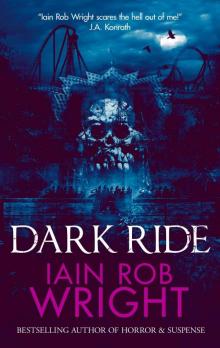 Dark Ride
Dark Ride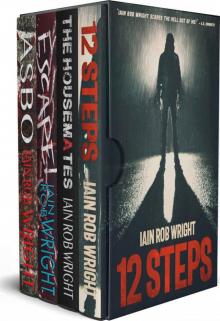 Gripping Thrillers
Gripping Thrillers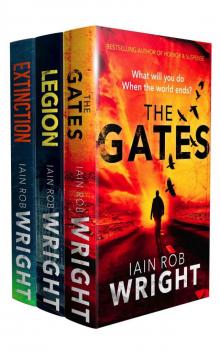 Hell on Earth Trilogy: The Complete Apocalyptic Saga
Hell on Earth Trilogy: The Complete Apocalyptic Saga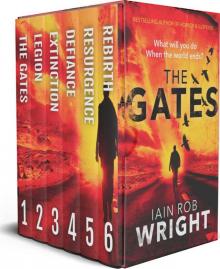 Hell on Earth- the Complete Series Box Set
Hell on Earth- the Complete Series Box Set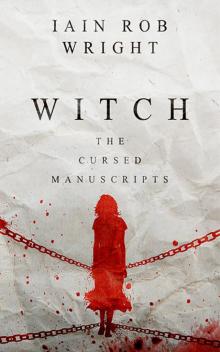 Witch: A Horror Novel (The Cursed Manuscripts)
Witch: A Horror Novel (The Cursed Manuscripts)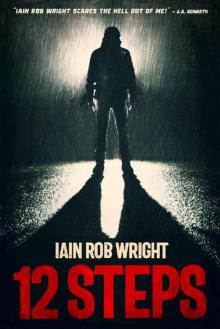 12 Steps
12 Steps A is for Antichrist
A is for Antichrist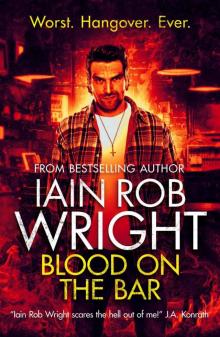 Blood on the Bar
Blood on the Bar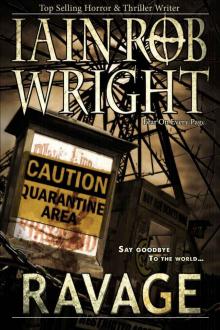 Ravage: An Apocalyptic Horror Novel
Ravage: An Apocalyptic Horror Novel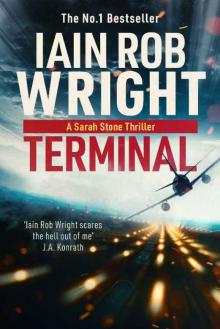 Terminal (Major Crimes Unit Book 4)
Terminal (Major Crimes Unit Book 4)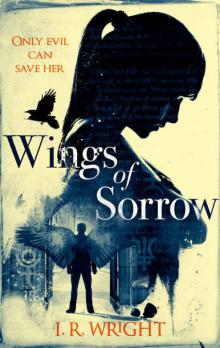 Wings of Sorrow (A horror fantasy novel)
Wings of Sorrow (A horror fantasy novel)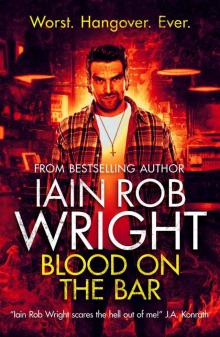 Blood on the Bar (Lucas the Atoner Book 1)
Blood on the Bar (Lucas the Atoner Book 1)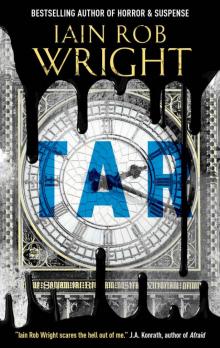 Tar: An apocalyptic horror novella
Tar: An apocalyptic horror novella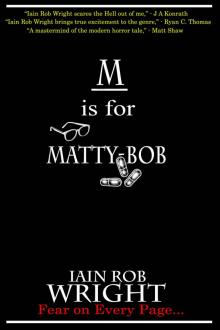 M is for Matty-Bob (A-Z of Horror Book 13)
M is for Matty-Bob (A-Z of Horror Book 13)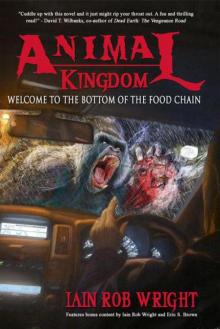 Animal Kingdom
Animal Kingdom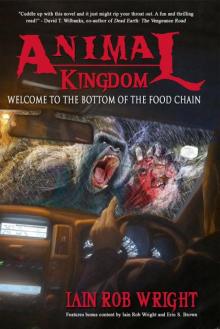 Animal Kingdom: An Apocalyptic Horror Novel
Animal Kingdom: An Apocalyptic Horror Novel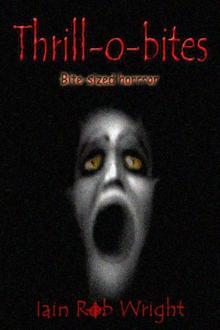 Thrillobytes: bite-sized horror
Thrillobytes: bite-sized horror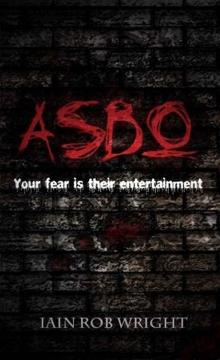 ASBO: A Thriller Novel
ASBO: A Thriller Novel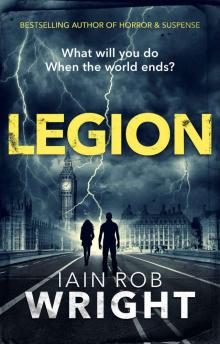 Legion: An Apocalyptic Horror Novel (Hell on Earth Book 2)
Legion: An Apocalyptic Horror Novel (Hell on Earth Book 2)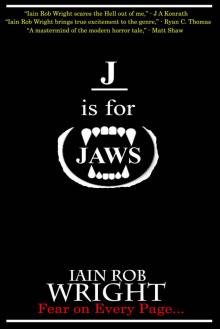 J is for Jaws (A-Z of Horror Book 10)
J is for Jaws (A-Z of Horror Book 10)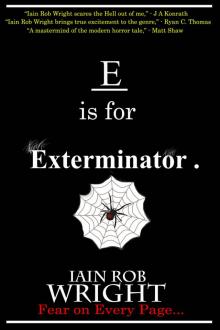 E is for Exterminator (A-Z of Horror Book 5)
E is for Exterminator (A-Z of Horror Book 5)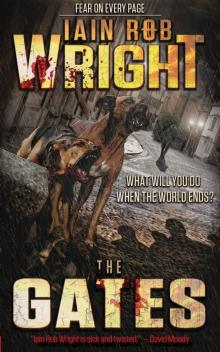 The Gates: An Apocalyptic Novel
The Gates: An Apocalyptic Novel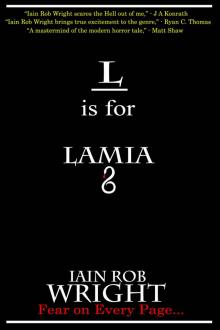 L is for Lamia (A-Z of Horror Book 12)
L is for Lamia (A-Z of Horror Book 12)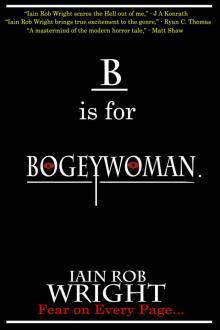 B is for Bogeywoman (A-Z of Horror Book 2)
B is for Bogeywoman (A-Z of Horror Book 2)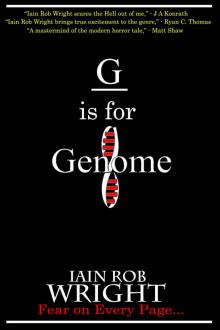 G is for Genome (A-Z of Horror Book 7)
G is for Genome (A-Z of Horror Book 7)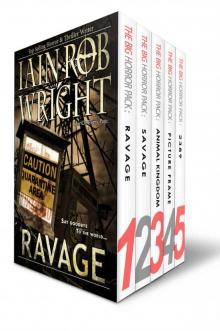 The BIG Horror Pack 2
The BIG Horror Pack 2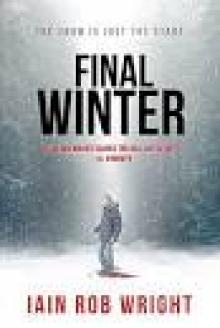 The Final Winter: An Apocalyptic Horror Novel
The Final Winter: An Apocalyptic Horror Novel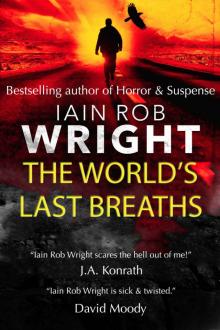 The World's Last Breaths: Final Winter, Animal Kingdom, and The Peeling
The World's Last Breaths: Final Winter, Animal Kingdom, and The Peeling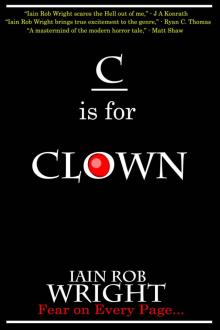 C is for Clown (A-Z of Horror Book 3)
C is for Clown (A-Z of Horror Book 3)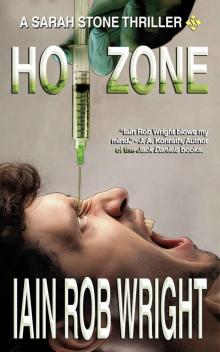 Hot Zone (Major Crimes Unit Book 2)
Hot Zone (Major Crimes Unit Book 2)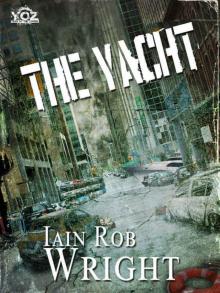 The Yacht (Year of the Zombie Book 3)
The Yacht (Year of the Zombie Book 3)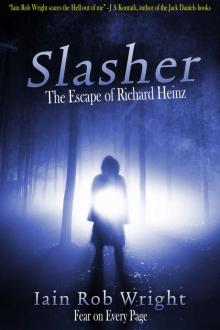 Slasher: the Escape of Richard Heinz
Slasher: the Escape of Richard Heinz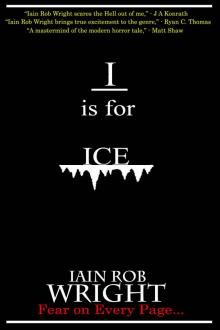 I is for Ice (A-Z of Horror Book 9)
I is for Ice (A-Z of Horror Book 9)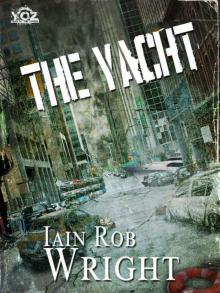 Year of the Zombie (Book 3): The Yacht
Year of the Zombie (Book 3): The Yacht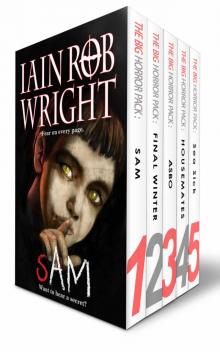 The BIG Horror Pack 1
The BIG Horror Pack 1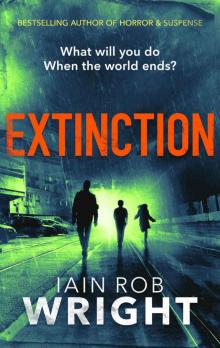 Extinction: An Apocalyptic Horror Novel (Hell on Earth Book 3)
Extinction: An Apocalyptic Horror Novel (Hell on Earth Book 3)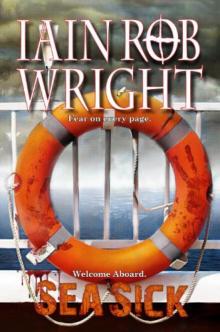 Sea Sick: A Horror Novel
Sea Sick: A Horror Novel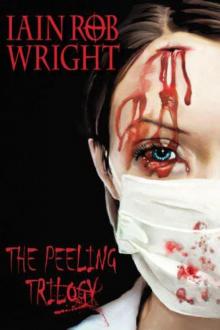 The Peeling Trilogy
The Peeling Trilogy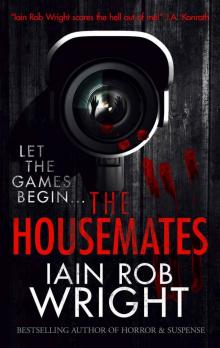 The Housemates: A Novel of Extreme Terror
The Housemates: A Novel of Extreme Terror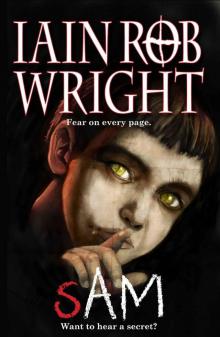 Sam
Sam